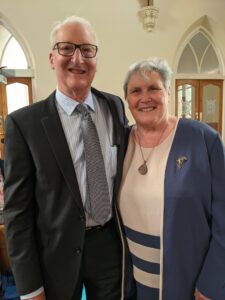
On Tuesday, 5th October 2021, Rev Peter Phillips was appointed as the Moderator of the General Assembly of Presbyterian Church of Victoria.
This address was recorded on the 23rd September at Bendigo Presbyterian for the Assembly, which was held remotely.
Congratulations to Peter and we look forward to having you and Lorraine represent the Presbyterian Church of Victoria.